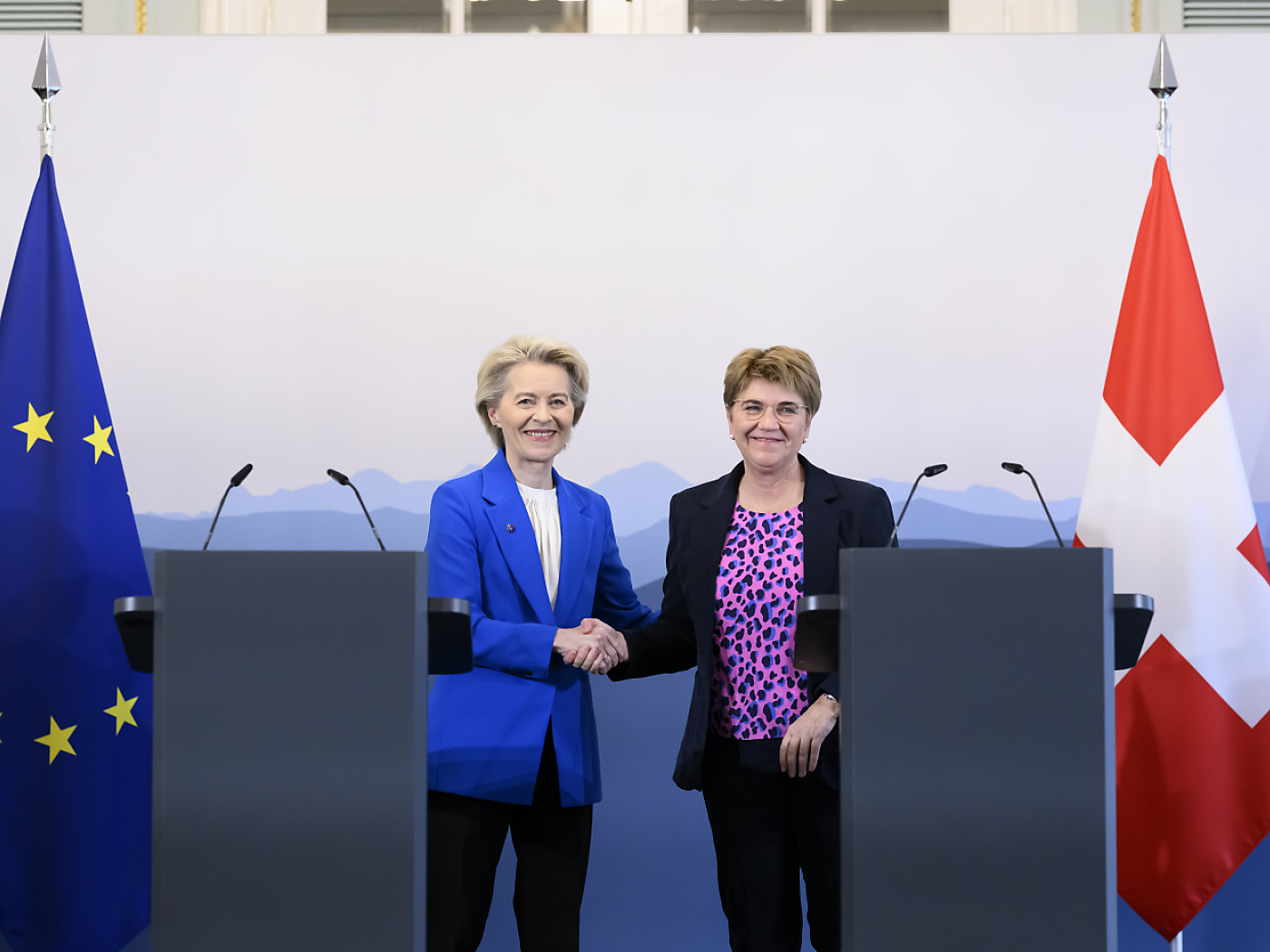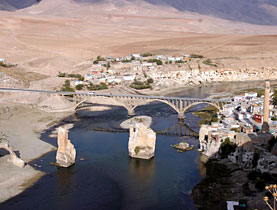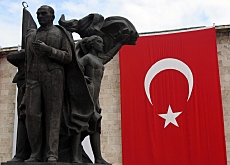Switzerland and Turkey reinforce friendship

Swiss President Pascal Couchepin has ended an official five-day trip to Turkey – the first ever visit by a Swiss president.
It is one of a number of visits by Swiss ministers to Turkey this month and marks a significant warming in relations between the two sides.
During his stay Couchepin, who is interior minister as well as holding the rotating Swiss presidency for 2008, discussed economic matters. He also joined Turkish president, Abdullah Gül, in celebrations marking the 80th anniversary of Swiss representation in Turkey.
His visit came shortly after a decision by the Swiss government to clamp down on the activities in Switzerland of the militant Kurdistan Workers’ Party (PKK), which wants autonomy for the traditionally Kurdish areas of Turkey. The move was warmly welcomed by the Turkish authorities.
On economic matters, Couchepin underlined Swiss support for the controversial Ilisu dam project in the southeast of the country.
Switzerland – along with Germany and Austria – granted an export risk guarantee worth SFr225 million ($190 million) in March.
Swiss support comes despite the fact that independent experts and development aid groups have repeatedly warned that Turkey has failed to respect international standards over social, environmental and cultural issues.
The Ilisu dam is part of a larger hydro-power project in the mainly Kurdish region and will result in the resettling of up to 60,000 people.
Friendly relations
During his visit Couchepin described Turkey as a “central, strategic partner”.
He told French-language Swiss radio on Monday that in the ten years that he had been a cabinet member, “mutual mistrust had disappeared”.
“I’ve always done as much as I can to improve relations with Turkey,” he said. “It’s a personal choice – I love this country.”
Despite Couchepin’s own enthusiasm, relations between Switzerland and Turkey have been soured in recent years over disagreements about whether the killing of hundreds of thousands of Armenians during the First World War amounted to genocide.
In June 2005 the Swiss public prosecutor launched a criminal investigation against a Turkish historian in Switzerland who had denied the genocide, a violation of Switzerland’s anti-racism laws.
The following month Gül, then foreign minister, described the Swiss investigation as
“unacceptable” and “absolutely contrary to the principle of free speech”.
Couchepin told Swiss radio that it was for historians, Turkish and Armenian, to sit down together round a table to work out what had happened and how it should be described.
“To make a historical event into a cause of political friction does not seem sensible to me,” he said.
His remarks sparked a furious response from the Swiss-Armenian Association.
Good will
During his visit Couchepin had a total of three meetings with Gül.
He also met Prime Minister Recep Tayyip Erdoğan, with whom he discussed political, cultural and economic relations including energy issues, since Turkey is a transit country for oil and gas supplies to Europe, the Swiss interior ministry said in a statement.
On Tuesday he presented to Turkey the table at which the Lausanne Peace Treaty was signed in 1923. The table has a special significance since that accord is regarded as the founding charter of the Turkish Republic and ended the Turkish liberation war (1919-1923) under Atatürk.
Swiss visits
In September Foreign Minister Micheline Calmy-Rey and her Turkish counterpart, Ali Babacan, signed a memorandum of understanding in Bern to strengthen ties.
Calmy-Rey subsequently held talks with Babacan in Istanbul at the beginning of November on the sidelines of a regional meeting of the World Economic Forum.
The Swiss foreign ministry supports Turkey’s joining the EU, believing Turkey can play an important role as a bridge-builder between the Muslim world and the West.
Economics Minister Doris Leuthard is due to travel to Turkey later this month and is expected to discuss the state of progress of the oil and gas pipelines.
swissinfo with agencies
Turkey has had close ties with Switzerland since the Turkish Republic was founded in 1923.
In 1925 Switzerland and Turkey concluded a Treaty of Friendship and in 1926, as part of the reform of civil and marriage law, Atatürk had the progressive Swiss Civil Code adopted almost verbatim in Turkish law.
More than 320 Swiss firms operate in Turkey, providing around 10,000 jobs. Switzerland is the sixth-biggest investor in Turkey.
With around 100,000 people (one-fifth of whom have dual nationality), the Turkish community in Switzerland is one of the country’s biggest foreign communities.
PKK activists are suspected of hitting about a dozen Turkish cafés, travel agencies and other buildings in Switzerland since October.
The Swiss government subsequently banned fundraising events due to be held at Kurdish celebrations later this month.
It has also applied a more restrictive policy on demonstration permits.
The PKK is prohibited in most European countries but there is no legal basis to impose an outright ban in Switzerland.

In compliance with the JTI standards
More: SWI swissinfo.ch certified by the Journalism Trust Initiative











You can find an overview of ongoing debates with our journalists here . Please join us!
If you want to start a conversation about a topic raised in this article or want to report factual errors, email us at english@swissinfo.ch.